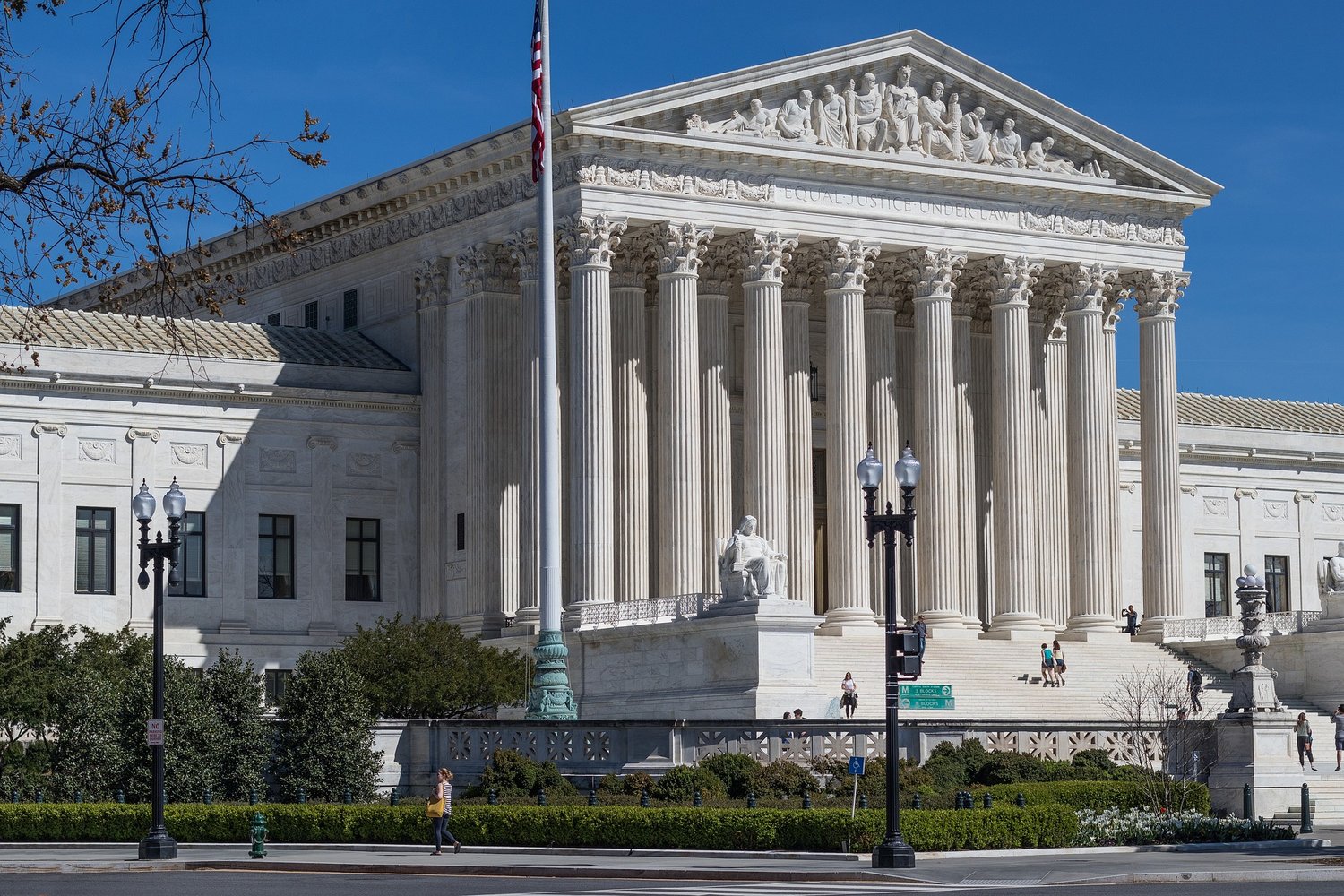Supreme Courts around the world play a pivotal role in shaping the legal and constitutional landscape of their respective countries. These high judicial bodies hold the responsibility of interpreting constitutions, resolving disputes, and upholding the rule of law. We have selected 10 most influential Supreme Courts across the globe, each with its unique mandate and impact on jurisprudence and governance.
Supreme Court of the United States
The US Supreme Court, located in Washington, D.C., is the highest judicial authority in the United States. Its primary role is to interpret and apply the U.S. Constitution. The Court consists of nine justices appointed for life, and its decisions have a profound and lasting impact on American law and society. It hears cases on a wide range of legal and constitutional issues, including civil rights, free speech, separation of powers, and more. Its decisions set legal precedents that guide lower courts and shape the legal landscape of the United States.
Supreme Court of the United Kingdom
Established in 2009, the UK Supreme Court is the highest court in the UK for civil and criminal matters, as well as issues related to devolution. Located in London, it has the authority to interpret and apply UK law, including constitutional matters. The Court plays a critical role in resolving legal disputes, ensuring the consistent application of laws, and addressing constitutional questions. It is independent of both the legislative and executive branches of the UK government, emphasising the importance of the rule of law.
European Court of Justice
Situated in Luxembourg, the European Court of Justice is the judicial institution of the EU. Its primary role is to interpret and enforce EU law. The European Court of Justice ensures the uniform interpretation and application of EU laws across all member states. It adjudicates cases related to EU treaties, regulations, and directives, impacting not only member states but also businesses and individuals within the EU. The Court's decisions help harmonise the legal landscape within the EU.
Supreme Court of Canada
The Supreme Court of Canada, based in Ottawa, serves as the highest court in Canada. Its primary function is to interpret and apply Canadian law, including the Canadian Charter of Rights and Freedoms. The Court is composed of nine judges appointed by the Governor General of Canada. It plays a pivotal role in settling legal disputes, ensuring legal consistency across the country, and safeguarding constitutional rights and principles. The Court's decisions have far-reaching consequences for Canadian jurisprudence and society.
Federal Constitutional Court of Germany
Germany's Federal Constitutional Court, located in Karlsruhe, is responsible for interpreting and safeguarding the German Basic Law (Grundgesetz), which serves as Germany's constitution. It ensures the constitutionality of laws and government actions, protecting fundamental rights and the principles of democracy. The Court's decisions have a profound impact on German law and politics, often setting legal precedents for the country's constitutional framework.
Constitutional Court of South Africa
The Constitutional Court of South Africa is based in Johannesburg and serves as the guardian of South Africa's post-apartheid constitution. It is responsible for upholding the principles of democracy, human rights, and the rule of law. The Court plays a pivotal role in protecting constitutional rights, ensuring government accountability, and promoting social justice in South Africa.
Supreme Court of India
The Supreme Court of India, located in New Delhi, is the highest judicial body in India. Its primary role is to interpret the Indian Constitution and provide justice in a wide range of matters, including constitutional, civil, and criminal cases. The Court is instrumental in safeguarding fundamental rights and liberties, and its judgments set legal precedents for the entire country.
Supreme Federal Court of Brazil
The Brazilian Supreme Federal Court, situated in Brasília, plays a vital role in interpreting the Brazilian Constitution and ensuring its supremacy. It has the authority to adjudicate cases involving constitutional issues and conflicts between the federal government and states. The Court's decisions have a significant impact on Brazilian law and politics.
High Court of Australia
The High Court of Australia, located in Canberra, is the highest court in Australia. Its primary function is to interpret the Australian Constitution and settle legal disputes of national significance. The Court also addresses matters related to federal-state relations and plays a crucial role in shaping Australian constitutional law.
Supreme Court of Israel
Israel's Supreme Court, located in Jerusalem, serves as the highest judicial authority in the country. It plays a critical role in safeguarding human rights, upholding the rule of law, and interpreting Israel's Basic Laws, which serve as the country's de facto constitution. The Court's decisions have a substantial impact on Israeli law, society, and government actions.
The power and significance of Supreme Courts extend far beyond their physical chambers. They are the guardians of constitutions, protectors of fundamental rights, and arbiters of justice, shaping the laws, rights, and liberties of their nations. As the legal and political landscapes evolve, these institutions will continue to shape the course of justice and governance, ensuring the principles of democracy, human rights, and the rule of law prevail.

































